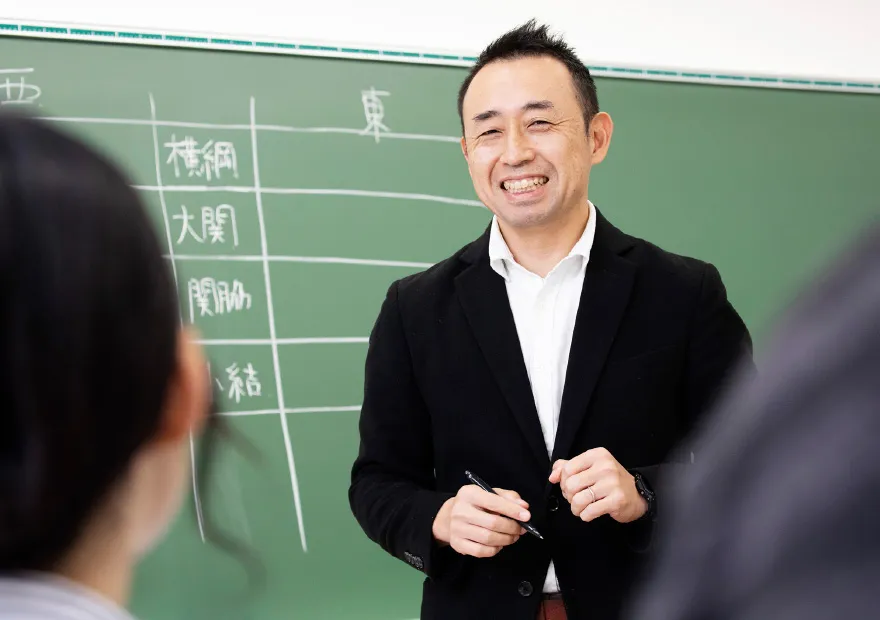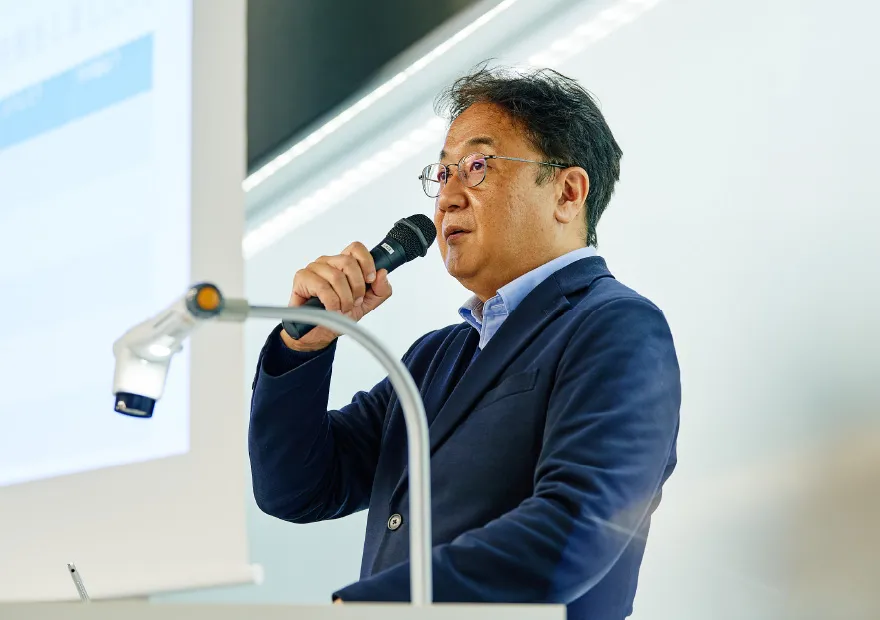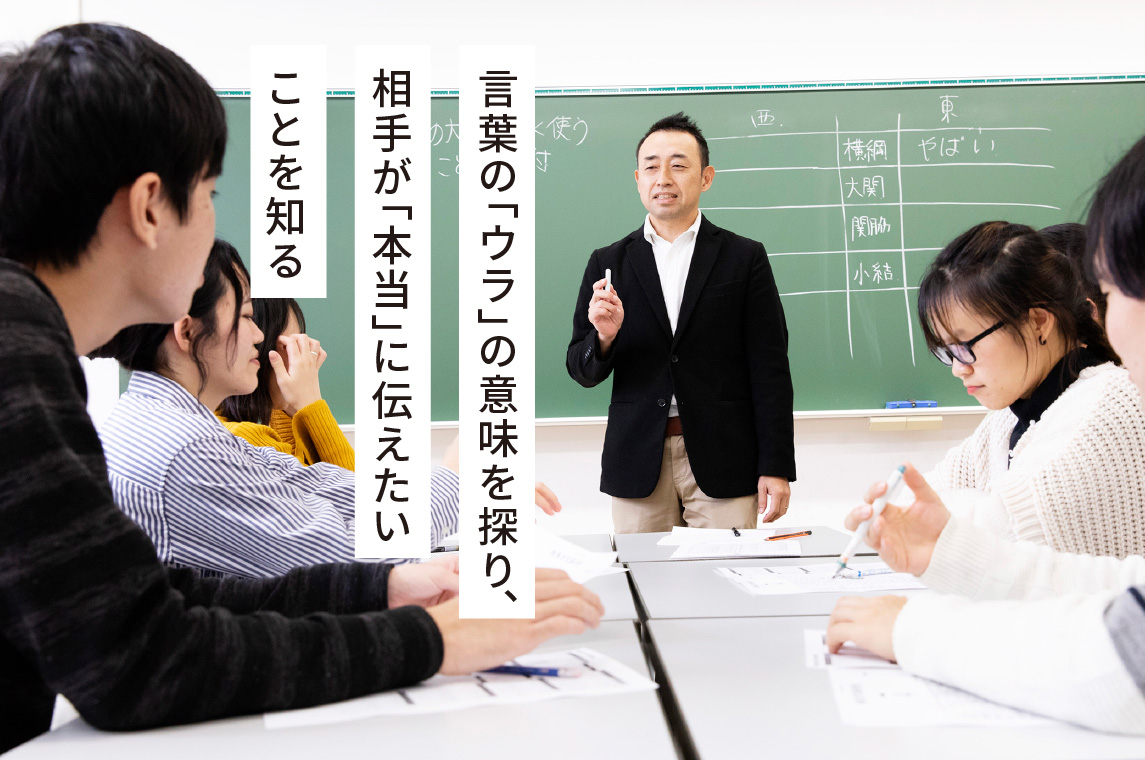

Language and education.
Japanese as a Second Language
Research from a perspective.
Through learning Japanese, you can rediscover what kind of people the Japanese are and what kind of person you are as a Japanese person. It also opens the door to teaching Japanese to foreigners once you have gained a deeper understanding of the language. You can become a person who can play an active role in Japan, which is a very international country.
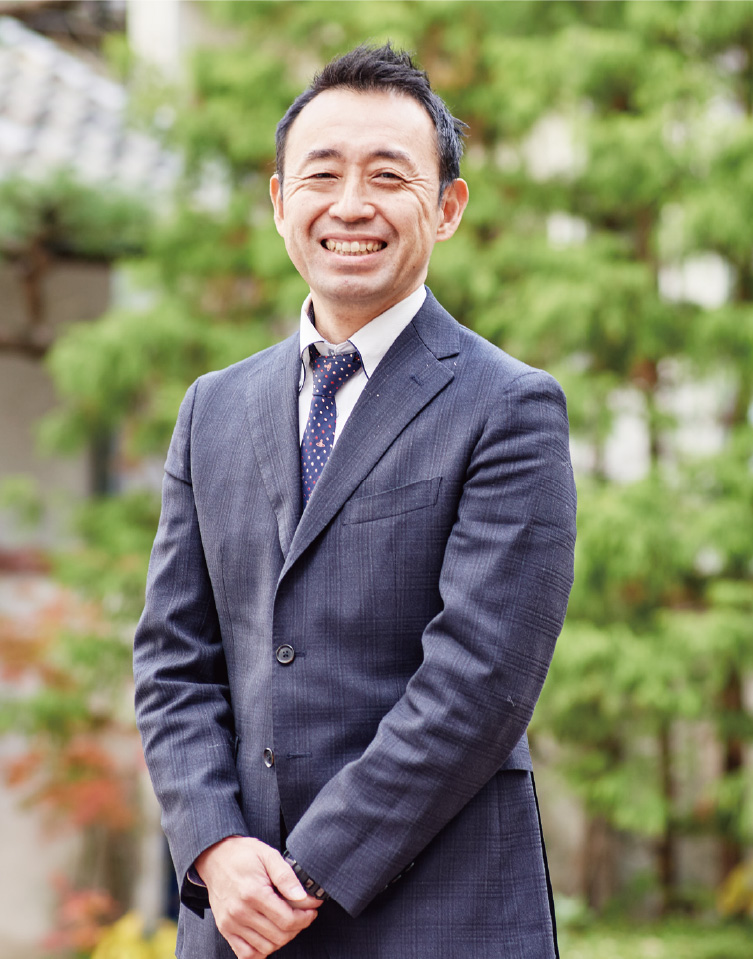
The hidden meaning of words and the power they hold
Learn,
Become a "word magician"!
For example, if you say "I'm hungry," your family will cook you dinner, and if you say "I want to see the ocean," someone might drive you to the ocean. Even though you haven't done anything physically, someone will act on their own, interpreting the intention of your speech. Don't you think words are magic? In this major, you will learn the hidden meanings behind words and the power they hold. Let's learn Japanese and become a "word magician"!Motonobu SuzukiProfessor PhD (Linguistics)
Key points for studying this major
-
- 1Deepen your understanding of the Japanese language,
Improve your language skills. - You will learn the origins, correct meanings, and usage of words. By reviewing everyday words and exploring their nuances and the impressions they give, you will improve your conversation skills and vocabulary, which are necessary for working adults.
- 1Deepen your understanding of the Japanese language,
-
- 2From your favorite literature and history
Understand the language and deepen your learning. - For example, you can read the original novel of a movie you saw, a classic you came across by chance in a bookstore, or research your favorite historical figure. By studying your favorite literature or history, you can deepen your understanding of Japanese and improve your language skills.
- 2From your favorite literature and history
-
- 3Language and Education
Through learning from both sides,
There are many options for the future. - By broadly studying both Japanese linguistics, which studies the history and rules of language, and pedagogy, which studies effective teaching methods, students can aim for a variety of career paths, such as teaching or working in the media industry, which deals heavily with language.
- 3Language and Education
Four-year learning process
-
- First grade
- Take classes in linguistics and education to learn different ways of looking at language.
-
- Second Year
- Based on basic knowledge of linguistics and education, you will learn about the connections with sociology, Psychology, and other fields.
-
- Third grade
- Students will deepen their research through seminars, and students aiming to become teachers will participate in internships, practical training, and seminars.
-
- 4th grade
- Students will then conduct research and give presentations in seminars on the topic they have explored, and compile their findings into a paper.


In practical classes where Japanese is conveyed carefully,
I gained knowledge and confidence.
The Japanese language teaching practicum was especially fun, and the mock lessons in teams allowed me to learn ideas that I would never have thought of. The feedback I received from the teachers after the practicum was also encouraging. I'm glad to see my circle of friends expanding one after another through the teachers. In particular, teaching a class for students from Mahidol High School in Thailand, which was my first attempt, was a valuable experience. The students' reactions exceeded my expectations, which made me realize that I had acquired knowledge and gave me a boost of confidence.
Suzuki HinaMr. Miss.
Graduated from Osaka Prefectural Education Center High School
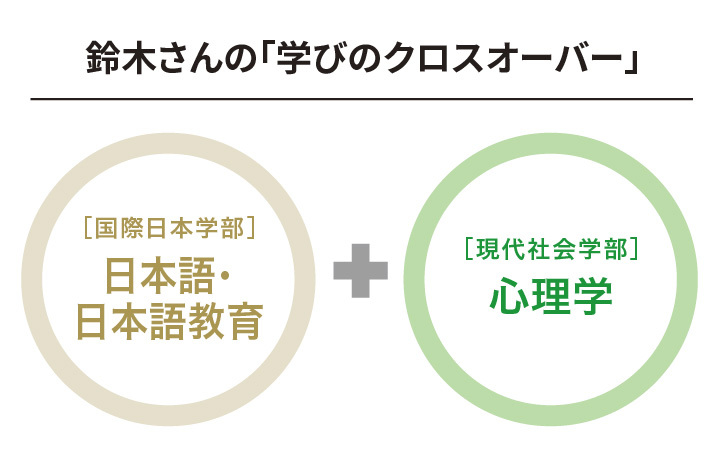

Pick Up Classes
By research topic
- ● Japanese values hidden in J-pop lyrics
- ● The difference between funny puns and not funny puns
- ● What are the difficult "Chinese words" for Chinese learners of Japanese?
- ● Should "dialects" be taught in Japanese language education?
- ● Do Japanese people's personalities and ways of thinking change when they speak English?
List of majors availableMajor subjects
Course names have been updated to make them easier to understand
- Japanese Studies and Asian Studies Course
- International Coexistence Course

